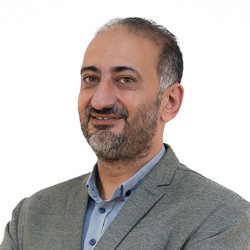Uganda
The Context
Over the past two decades, Uganda has experienced high economic growth and a significant decline in poverty. The economy of Uganda grew by more than 5 per cent in 2022 while the agriculture, forestry and fishing sector grew by almost 5 per cent.
Despite this, approximately one in four rural people live in poverty compared to just over one in ten people in urban areas.
The agriculture sector in Uganda accounts for 24 per cent of GDP and employs seven in ten of the working population. Agriculture is an important source of income for people without formal education.
Uganda’s population density has almost doubled in the past 20 years and is expected to double again over the next 20 years. The country has a very high and growing dependency ratio, with a relatively small working age population supporting a high proportion of young and old people.
The country’s fast population growth and reliance on climate sensitive sectors, such as agriculture and forestry, make it highly vulnerable to climate change and extreme weather events, including prolonged droughts, floods and landslides.
The Strategy
IFAD works to increase the incomes of poor rural people, in particular small-scale farmers with the potential to commercialize their economic activities, and extremely vulnerable households with limited livelihood options and who are generally bypassed by development initiatives.
IFAD’s strategic objectives in Uganda are to:
- support increased production, productivity, value addition, competitiveness and inclusion of small-scale farmers within selected value chains;
- strengthen the environmental sustainability and climate change resilience of poor rural people; and
enhance sustainable livelihood development for marginalized and poor people, especially women and youth.
Country Facts
- The proportion of the population living on less than one dollar a day fell from 53 per cent in 1993 to 20.3 per cent in 2020.
- In 2021, about 35 per cent of the working age population was engaged in purely subsistence farming.

